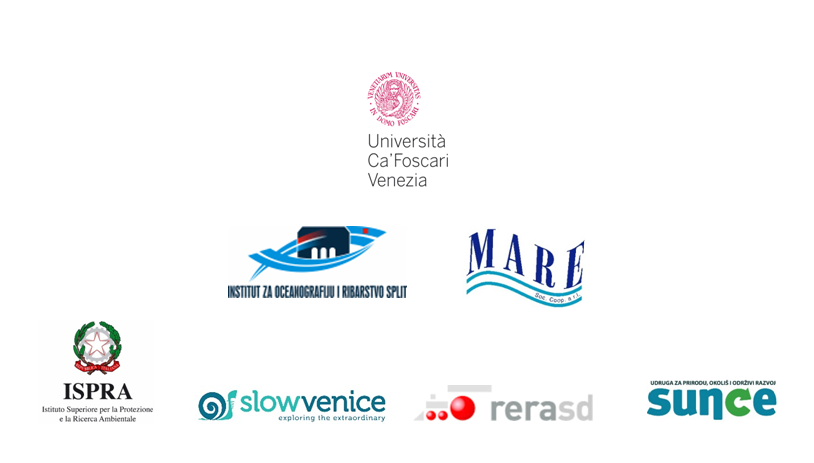
The ML-REPAIR project (REducing and Preventing, an Integrated Approach to Marine Litter Management in the Adriatic Sea) started on 01.01.2018. and will last for a total of 18 months.
The general objective of the ML – REPAIR project is to prevent and reduce the incineration and spraying of waste in the Adriatic Sea. The Adriatic Sea is a semi-closed pool with slow streams, making it vulnerable to pollution. Marine Litter (ML) is defined as any solid, manufactured or processed solid material discharged into the marine and coastal environment. It is a growing cause of concern for the degradation of the marine and coastal ecosystems, potentially endangering the functionality of the ecosystem itself and reducing the quality of coastal waters for fishing and tourism. Sea cross-border issues already have cross-border effects, so wastewater issues require common approaches from different countries and their joint efforts to find the right and appropriate solution and approach.
Within the ML-REPAIR project, activities are being carried out in Croatia and Italy, and the main focus of the project is to involve the target groups – fishermen and fishing associations / cooperatives, local communities and the younger population, the tourism sector, public administration bodies and the FLAG – (Fisheries Local Action Groups in Croatia and Italy) and LAGs (Local Action Groups).
The project leader is CA ‘Foscari Fakultet, University of Venice, and partners are the Italian National Institute for Environmental Protection and Research (ISPRA), the Association of M.A.R.E. and LIMOSA from Italy and the Institute of Oceanography and Fisheries, Public Institution RERA S.D. for the coordination and development of the Split-Dalmatia County and the Association for Nature, Environment and Sustainable Development Sunce, Split.
Specific objectives of the project are:
- Educate and raise the awareness of target groups on marine waste and encourage the adoption of examples of good practices;
- Reduce the amount of waste at the seabed by including the fisheries sector and FLAGs;
- Provide innovative tools to support the application of “Fishing for Litter” and data collection.
The main activities of the project are:
- Investigating new educational tools to encourage positive changes in attitudes and behavior towards marine waste and, in general, pollution among future generations in the local community (younger populations) and in fishing communities / professional associations / cooperatives;
- Promoting awareness among tourists on coastal areas, thus stimulating the sustainable growth of the tourism sector;
- Providing data and innovative tools to decision-makers (public administration bodies), meeting the need for better understanding of the obstacles to be removed to launch more comprehensive transboundary initiatives to establish a proper marine waste management system;
- Reducing marine waste through a participatory approach to the fisheries sector, improving cooperation between science and fisheries-related organizations, including the Fisheries Local Action Group (FLAGs);
- Consolidation of cross-border cooperation, exchange of knowledge and reduction of the gap between different approaches to marine waste;
- Reduction and prevention of pollution of the sea, which in the long term improves the quality of the Adriatic Sea ecosystem;
- Evaluation of the potential contribution of the activities of the so- ‘Fishing for litter’ (FfL) to reduce the occurrence of micro-plastic;
- Monitoring the status of Natura 2000 sites in terms of the presence of marine waste and its impacts.
Estimated results:
- The ML-REPAIR project will contribute to environmentally sustainable growth of tourism and fishing activities in the Adriatic Sea by providing an effective approach and measures that can reduce and control marine waste in the Adriatic Sea and thereby improve the quality of the environment;
- Reducing the share of marine waste, the source of which is the tourism sector (tourism, tourists) through customized education activities and raising awareness.
- Quantitative removal of residues accumulated at sea bottom in accordance with appropriate environmental practices,
- Innovative solutions such as tools and testing technology that will help decision-makers (public administration bodies) effectively access the marine waste issue in a short time.
- Better cross-border and transnational cooperation of the scientific community and local action groups for fisheries (FLAGs, LAGs).
The project is funded under the 2014 – 2020 Interreg V-A, Italy-Croatia CBC Program. The total amount of the project is 1,007.093,20 €, of which the Program finances a total of 856.029,20 €.
